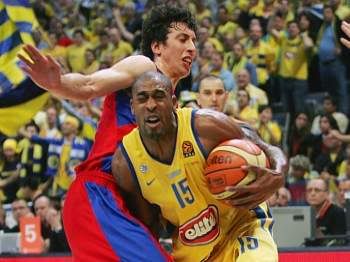Hanukkah - A missed opportunity and seized opportunities
We often overlook that the Hasmonean struggle was against Jewish traitors - Hellenists - even more than against the Greeks themselves. It began when Matityahu (Matthew in English) ran up to a pagan altar and killed a Jew who was about to sacrifice a pig to a Greek idol. The Greeks forbade brit milah, circumcision, and Maccabean soldiers forcibly circumcised the sons of Jews who may not have desired to have their sons circumcized. If the Hasmoneans had not persisted so doggedly, the Jewish people would have been swallowed by Hellenistic culture as were all other conquered peoples, Christianity would not have arisen, and the world would be a different place.
But when I step back and try to see those events objectively, I wonder if I myself and many other observant Jews who share my outlook would not have been Hellenists ourselves. Not all Hellenists were idolaters; many were attracted to the more attractive elements of the culture - art, music, theater, athletics and so on. The fact is that Jews and Greeks got along quite well under Alexander the Great (to this day we name baby boys Alexander), the Ptolemies and even the early Seleucids. We paid taxes and practiced our religion unmolested. Many Jews studied the Greek language and used it to communicate with the rest of society, while using Hebrew and Aramaic to communicate with one another. True, we had to coexist with out-and-out avoda zara (idolatry), but until the rise of Christianity we always have. And we were unable to participate in Greek sports because their athletes competed naked ("gymnasium" is derived from gymnos, the Greek word for naked) and circumcized men were not allowed to compete. Many Hellenized Jews had themselves painfully decircumcized in order to participate; our sources strongly condemn those who "abrogate the covenant of our father Abraham" (mefer brito shel Avraham Avinu). Now, imagine if Antiochus IV Epiphanes ("God revealed") would have been more tolerant and less chauvinistic. Jews and Greeks would have interacted more, and each would have absorbed whatever was most beautiful and uplifting in the other's culture. Jewish youth would have competed in Greek sporting events, but with clothes and without sacrificing to idols. Intelligent Greeks, who were beginning to see that the world was an orderly place governed by natural law, would have questioned their belief in a panoply of gods forever warring with one another; the Greeks made their gods in their own image instead of the other way around. Antiochus missed a terrific opportunity to achieve in the second centure B.C.E. the synthesis that was achieved in the nineteenth and twentieth centuries C.E. Rav Kook taught that it was desirable to "bring the beauty of Yefet [the ancestor of the Greeks] into the tents of Shem." But then we wouldn't have the latkes, the sufganiot and the dreidels.
Battle was joined, initially to restore the religious autonomy that we enjoyed under the Persians and the Greeks up until Antiochus. Against all odds, the Maccabees defeated both the Greeks and their Jewish collaborators and were able to rededicate the Temple three years after the Greeks defiled it. But the Greeks were still ensconced in the Akra fort in or near Jerusalem, and in their many pagan cities (polises) throughout Judah. The Hasmoneans realized that as long as the Greeks held the high ground they would be a constant threat, militarily and culturally. They saw an opportunity to throw them out of the country altogether and they seized it, restoring Jewish political independence for the first time since the fall of the First Temple in 586 B.C.E. The later Hasmonean rulers adopted Greek names (Hyrcanus, Aristobolus and such) and Greek customs, and became Tzedokim (Sadducees), so it might be argued that the Hellenists won after all, but we enjoyed an unparalleled flowering of Torah scholarship as well as material prosperity. As Mahatma Gandhi reportedly asked the British viceroy of India, who would not prefer their own bad government to the good government of strangers?
Hanukkah presents us with at least two opportunities to seize. One is the rediscovery that we have bodies and we have to make and keep them strong to optimize our avodat Hashem. Hey, if God wanted disembodied Holy Ghosts he would have made them. It is said that any literary or cultural movement that comes to the larger society gets to us one or two generations later. Physical fitness became prominent in the mass culture in the 1960s and 1970s; that's when I started lifting and running. But I would see few other Jews at the races. Once in a while a race would be held the Sunday of Hanukkah, and I would run it in a top I made for the purpose, complete with tzitzit; click here and here. When people would ask about the tzitzit, I would explain that in Greek times Jewish athletes would have themselves decircumcized in order to run with the Greeks, so now I'm running while proudly showing the world who I am. Today more and more observant Jews are running (and working out in gyms) and there is even a Jewish running club in Brooklyn: JRunners.
The second opportunity concerns bridging the chasm between religious and secular Jews here and especially in Israel. Hanukkah is a holiday that appeals powerfully to both camps. To us it represents the miraculous victory of Torah over evil forces that would have destroyed it. To the secularists it represents the equally miraculous victory of Jewish fighters restoring Jewish sovereignty on Jewish soil. But they are two sides of the same coin. We can study Torah under foreign domination, but with the proverbial Greeks in the Akra, a constant threat hanging over our heads. And the Torah itself becomes distorted, since authentic Torah is predicated on normality, i.e. Jews running their own affairs and working their own soil.
Carpe diem.
Labels: Hanukkah, Jerusalem, Maccabees, Modern Orthodox, Olympics, sports, Zionism






